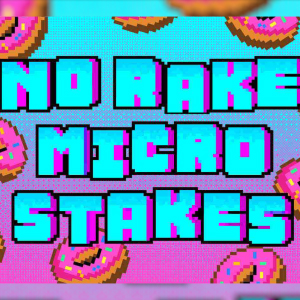Old School vs. New School: Classic Poker Strategies That Still Succeed Online
2 months ago

12 Aug
Poker's history reveals a big shift, from dimly lit, smoky rooms to the dynamic virtual world. Although the game has moved online, classic strategies still have great value. No matter your experience level, combining classic techniques with current online approaches may provide you with a competitive edge. These long-standing methods are still useful and applicable as strategies in the online world.
The Art of Reading Opponents in a Digital Age
Experienced poker players have always watched for physical clues to understand their competitors' thoughts. Small actions, such as a quick glance or shaky hands when collecting chips, could reveal hidden feelings. Online poker changes this because you can't see your opponents. Even so, knowing your competition is still key. Instead of physical tells, pay attention to their betting habits, decision-making speed, and anything they say in the chat box.
For instance, if someone quickly calls every bet, they might be chasing a draw. On the other hand, a player who hesitates before raising could be showing strength, or maybe they just had lag. By jotting down these tendencies, most online sites let you add personal notes or tags to players that let you build up a mental profile, much like the seasoned pros did at real tables. The trick is to keep your eyes open and tweak your usual way of reading players for the online game.
Digital Tells to Watch For
- Bet Timing: Quick bets often mean weakness; long pauses can hint at a big hand or a bluff.
- Bet Sizing Patterns: Overbets or oddly small bets can reveal a player’s confidence (or lack thereof).
- Chat Clues: Some players can’t resist venting or gloating in the chat, giving you a peek into their mindset.
Positional Play: The Old-School Edge That Still Rules
If there’s one poker lesson that’s stood the test of time, it’s the power of position. Playing from the button or late position gives you control over the pot and insight into your opponents’ actions, just as it did in the days of Doyle Brunson and Johnny Chan. Online, where games move at lightning speed and multi-tabling is the norm, positional play is even more critical.
Why? Because Online poker players, especially at lower levels, often follow predictable patterns. For example, a player who plays tight in the early position probably won't bluff much. Late-position players who are loose and aggressive might attempt to steal blinds. If you capitalize on your position, you have more control over the hand. This helps you win pots and avoid troublesome scenarios. To do this successfully, select a site suitable for your playing style because choosing the right online poker site allows you to find tables that have weaker players or improved game structures. This, in turn, will allow you to use your positional skills in the best way.
Patience: The Classic Virtue That Pays Off Online
In traditional poker, patience was key. Great players like Phil Ivey would often fold many hands, waiting for the right opportunity. But online games move fast, with many tables running, so players may feel pressured to play weak hands just to stay involved. That's why discipline is so important for success.
A smart way to play is to be selective and aggressive – play fewer hands, but play them strongly. Information from some sites suggests that patient players, who choose their battles carefully, usually do better than careless ones. Fold weak hands and bet when odds are favorable. This saves money and builds your reputation as a tough player, even anonymously online.
Bluffing: Old-School Swagger Meets Online Precision
Bluffing is poker’s Hollywood moment—think of a grizzled pro pushing all-in with nothing but air. Online, you can’t stare at Ascot or stare down your opponent, but the art of bluffing is still alive and well. To be good at online poker, you need to change classic bluffing moves for the game and look for patterns instead of physical tells.
A semi-bluff with flush or straight potential, or a complete bluff, can still be profitable, but caution is needed. Since the stakes are smaller and players are anonymous, online opponents may call with weaker holdings. Choose when to bluff carefully. Observe the table dynamics – if someone folds often to big bets, exploit this tendency with bluffs. The core skills of traditional poker remain relevant; simply adapt them to the modern online game.
Classic Strategies That Crush Online
Here are some battle-tested poker strategies that translate perfectly to online play:
- Bankroll Management: Never risk your whole stack, just like the old pros taught. Set strict buy-in limits to weather online variance.
- Starting Hand Discipline: Stick to premium hands in early position to avoid trouble and maximize value.
- Pot Odds Mastery: Quick math on pot odds, a staple of classic poker, ensures you’re making profitable calls and raises.
- Table Selection: Just as live players scoped out soft games, picking the right online tables boosts your win rate.
Conclusion
In the modern world of online poker, tried-and-true strategies still hold weight. To do well, keep a close watch on how your opponents act when playing online. Understanding where you are seated at the table is also key. Waiting for the right moment and bluffing at the right time can provide great help.
To increase your chances, combine these concepts with a strong and secure online site. If you make smart choices about where you play and keep these strategies in mind, you may find your chip stack growing.







Comments
You need to be logged in to post a new comment